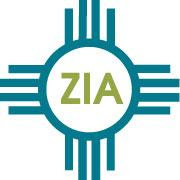There are a lot of debates on whether focusing on strengths or focusing on weaknesses is the best way to manage employees. And on either side of the debate are solid arguments. From my experience, you have to do both. But it also depends on the individual and the context. Focusing on one to the exclusion of the other can be career limiting to your employees. I once coached an individual who had become difficult to manage, was not a team player, only did what was necessary and was disruptive to the rest of the team. They were sent to me to “fix” or they were "out". After doing a bit of background on the individual, it became clear that they had once been a good performer, not outstanding, but a safe pair of hands. They had been contributing well and were well-respected. What changed? Looking at their past 360 evaluations, it was evident that the performance issues had been around from the beginning, however they had never been communicated to the employee. The employee only ever received excellent feedback about their strengths. Weaknesses were washed over. When it came time for remuneration and promotion the employee was overlooked. As a result and over time, their behaviour on the job deteriorated, they felt cheated and betrayed and they started focusing on the weaknesses of others to justify their own behaviours. When we finally sat down and had an honest discussion, the person was almost relieved to have the feedback. It was difficult for them to accept initially and we spent a fair amount of time rebuilding their confidence and trust in their manager and the organization, but we managed it. In the end their behavior and, most of all, their performance improved and they were supporting the team. It was then I turned my attention to the manager(s) …..
At the end of the day it is about balance. Focusing on strengths is a great way to build relationships and trust in your teams. It helps people build confidence and enables a manager to deliver difficult messages more effectively because the messages are perceived as constructive not personal. It is also a good way to help people focus on how they can leverage what they’re good at to do even more. Equally, helping employees to identify and recognise weak areas gives them the information they need to make changes. You can't fix it if you don't know it's broke. In many cases, strengths can compensate for weak areas and in many cases, it is an overused strength that has become a weakness e.g. confidence has become arrogance. As always it’s about finding balance.
Thanks for reading!!

Thursday, 4 February 2010
Subscribe to:
Post Comments (Atom)





No comments:
Post a Comment